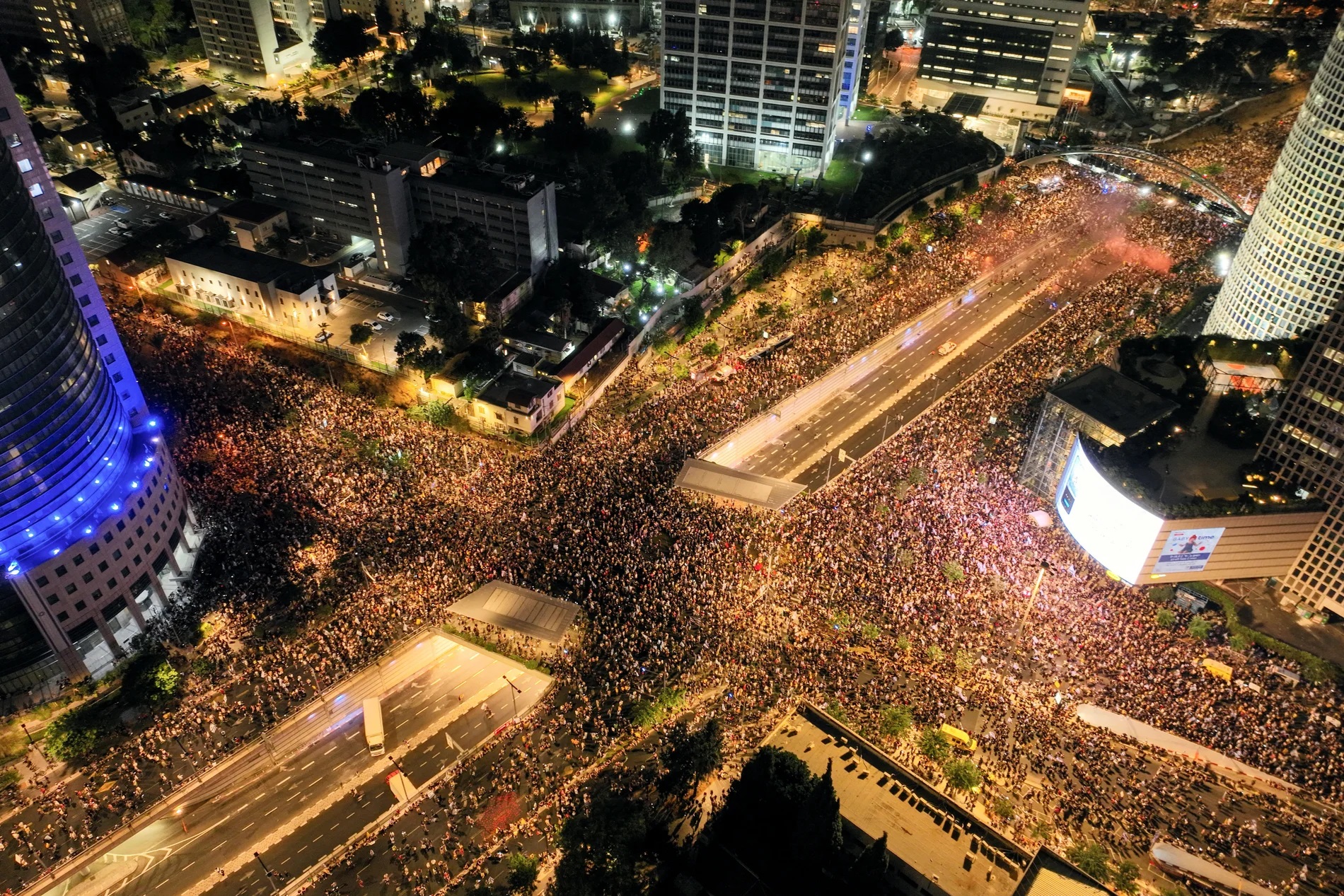
Published 02/09/2024 11:20 | Edited 02/09/2024 13:23
Social unrest has been shaking Israel since Sunday (1st), when 300,000 people took to the streets of Tel Aviv to protest against the decision of Prime Minister Benjamin Netanyahu’s government not to reach a ceasefire and hostage exchange agreement in the Gaza Strip. On Monday morning (2), the country woke up to an intense general strike in the biggest disagreement between the population and the government since the beginning of the war, on October 7th of last year.
The riot comes after the army announced on Sunday morning that it had recovered the bodies of six Israeli hostages held in tunnels operated by Hamas. According to army spokesman Daniel Hagari, it is estimated that they were killed between 48 and 72 hours before the military found them.
Three of them were to be released in the first phase of a ceasefire proposal discussed in July. An estimated 101 hostages are still alive.
Netanyahu’s far-right government has been hindering the ceasefire and hostage exchange agreement while simultaneously stirring up a new conflict with Hezbollah and Iran. The prime minister’s goal is to prolong the war in the Middle East for longer to escape justice at home.
On Sunday afternoon, 300,000 people took to the streets of Tel Aviv in the largest protests since March 2023 (at the time, the population was protesting against Netanyahu’s proposed judicial reform to avoid convictions). Local press estimates that another 200,000 people demonstrated in other cities.
Following the protests, the Histadrut (General Workers’ Organization), the country’s main trade union, called a general strike that paralyzed several sectors of the country’s economy. Employers’ associations also joined the strike.
Ben Gurion Airport, the country’s main airport, was closed for two hours between 8 a.m. and 10 a.m. local time. Inbound flights continued during that period, the Israel Airports Authority said.
Public transport, which is run by private companies, was partially affected and schools remained closed. Hospitals announced that they would operate on Shabbat, when Jews rest and restrictions are imposed for the religious period.
The Histadrut reported that banks, some large shopping malls and government offices also joined the strike.
“We need to reach an agreement [sobre o retorno dos reféns sobreviventes]. An agreement is more important than anything else,” Bar-David, the Histadrut chairman, told a news conference. “We are getting body bags instead of an agreement.”
Ceasefire advocates and Netanyahu critics argue that a deal to end the exchange of fire could have saved the lives of the six people killed.
The Israel Manufacturers Association said the government was failing in its “moral duty” to bring the hostages back alive. “Without the return of the hostages we will not be able to end the war, we will not be able to rehabilitate ourselves as a society and we will not be able to begin to rehabilitate the Israeli economy,” said the association’s head, Ron Tomer.
For months, mediators from Qatar, Egypt and the United States have been trying to convince Hamas and Israel to reach a ceasefire deal that would include a hostage swap for Palestinian prisoners held by Israel, but so far without success.
Netanyahu’s government has been banking on Donald Trump’s victory in the US presidential election, scheduled for November 5, which would give him a blank check to continue and complete the destruction of Gaza.
Source: vermelho.org.br

